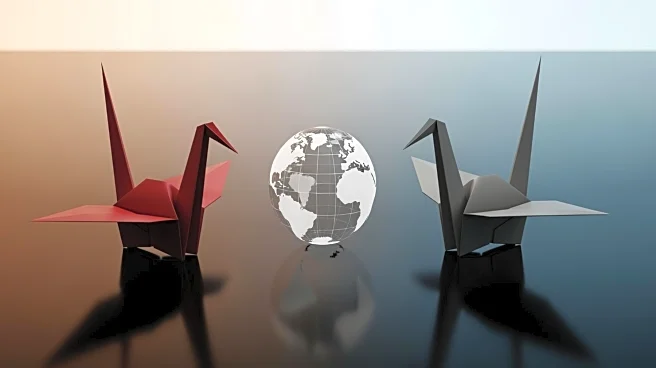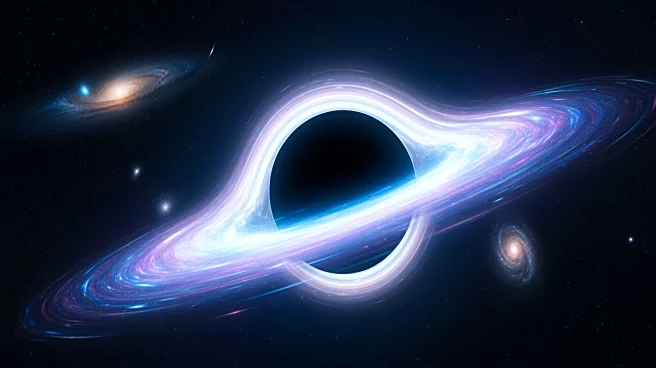What's Happening?
China's Foreign Minister Wang Yi has expressed strong disapproval of recent comments made by Japanese Prime Minister Sanae Takaichi regarding Taiwan. Wang Yi described Japan's actions as 'shocking' and accused Takaichi of crossing a red line by suggesting
a military response to a hypothetical Chinese attack on Taiwan. This diplomatic row has escalated tensions between China and Japan, affecting trade and cultural relations. China has raised the issue with the United Nations, emphasizing its stance on Taiwan, which it views as its territory. Taiwan's government, however, rejects Beijing's claims, asserting that only the island's people can decide their future.
Why It's Important?
The diplomatic tensions between China and Japan over Taiwan have significant implications for international relations and regional stability. Japan's stance could influence its diplomatic and trade relations with China, its largest export market after the United States. The situation also highlights the geopolitical complexities surrounding Taiwan, a democratically governed island that China claims as its territory. The potential for military conflict in the region could have far-reaching consequences for global security and economic stability, affecting stakeholders in both countries and beyond.
What's Next?
The ongoing diplomatic row may lead to further discussions at international forums, including the United Nations, where China has already raised the issue. Japan's response to China's criticism and its future actions regarding Taiwan will be closely watched by global leaders and international organizations. The situation could prompt other countries to reassess their positions on Taiwan and their diplomatic relations with China and Japan.
Beyond the Headlines
The conflict underscores the historical tensions between China and Japan, with China warning against the resurgence of Japanese militarism. This reflects deeper cultural and historical issues that continue to influence diplomatic relations in East Asia. The situation also raises questions about the role of international law and the United Nations in mediating such conflicts, particularly concerning territorial claims and the use of force.

















